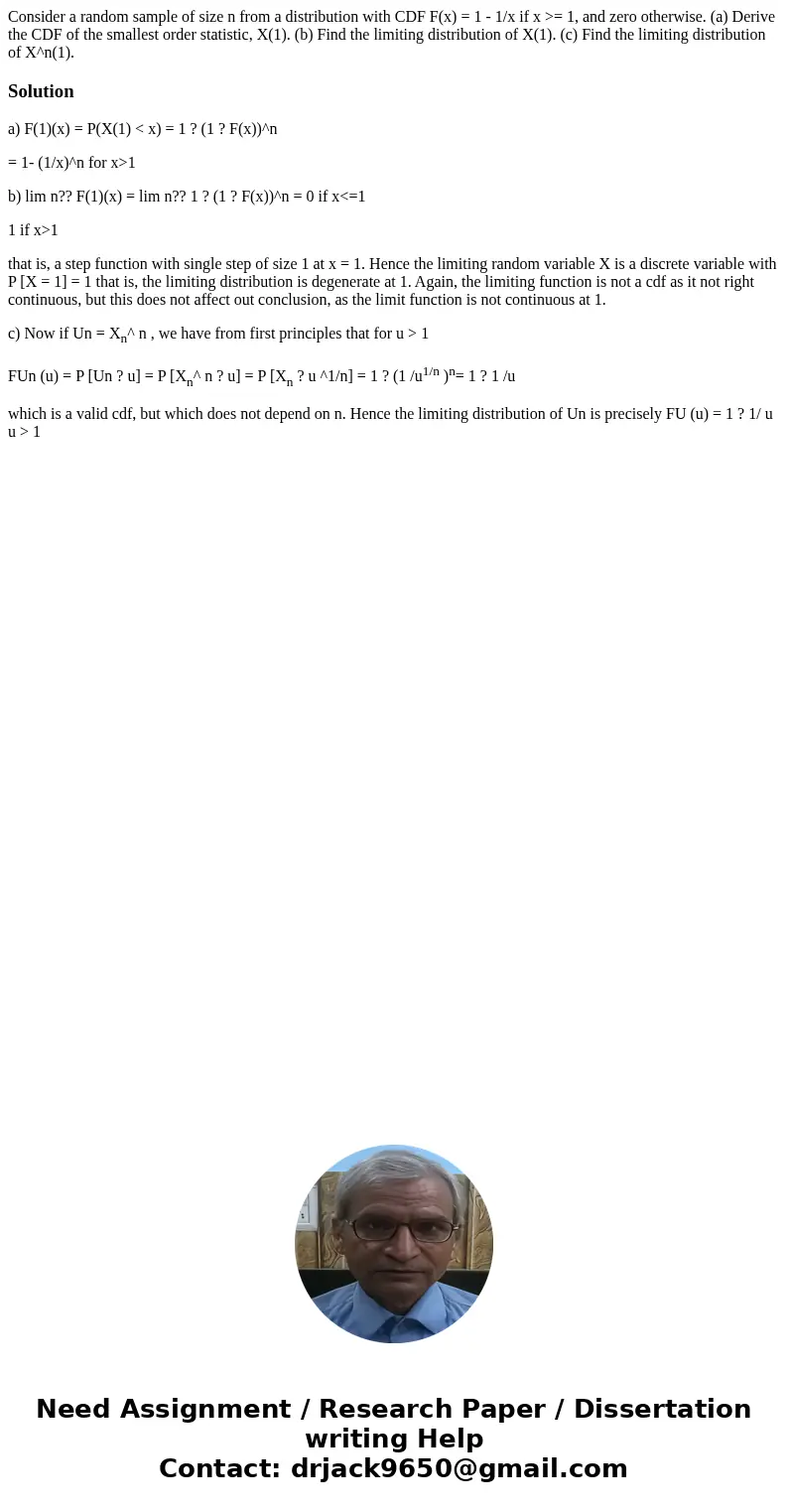Consider a random sample of size n from a distribution with
Solution
a) F(1)(x) = P(X(1) < x) = 1 ? (1 ? F(x))^n
= 1- (1/x)^n for x>1
b) lim n?? F(1)(x) = lim n?? 1 ? (1 ? F(x))^n = 0 if x<=1
1 if x>1
that is, a step function with single step of size 1 at x = 1. Hence the limiting random variable X is a discrete variable with P [X = 1] = 1 that is, the limiting distribution is degenerate at 1. Again, the limiting function is not a cdf as it not right continuous, but this does not affect out conclusion, as the limit function is not continuous at 1.
c) Now if Un = Xn^ n , we have from first principles that for u > 1
FUn (u) = P [Un ? u] = P [Xn^ n ? u] = P [Xn ? u ^1/n] = 1 ? (1 /u1/n )n= 1 ? 1 /u
which is a valid cdf, but which does not depend on n. Hence the limiting distribution of Un is precisely FU (u) = 1 ? 1/ u u > 1

 Homework Sourse
Homework Sourse